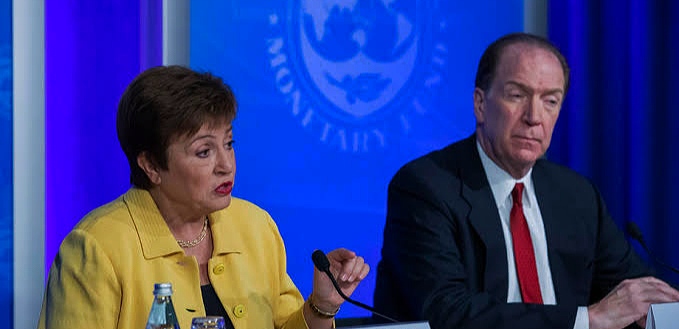There are no products in your shopping cart.
| 0 Items | £0.00 |


NIGERIA and several other developing nations could get their promised debt relief which G20 countries promised them in the wake of the Covid-19 pandemic very soon after the World Bank and the International Monetary Fund (IMF) promised to fast track payments.
Following the outbreak of the coronavirus pandemic, developing nations were hit hardest and as a result, the G20 promised to offer them some debt relief. Nigeria in particular bore the brunt of the pandemic, as for two years in succession, about one through of her budget was funded through borrowing.
Even now that the lockdown is over and Nigeria is able to sell her crude oil at healthy prices on the world market, the economy is still in a mess as high debt servicing bills have crippled the treasury. When added to the fact that high oil prices mean high costs for refined products, Nigeria is facing dire straits.
However, at the ongoing 2022 Spring Meetings of the World Bank-IMF in Washington DC, it has been decided to fast track the implementation of the G20 debt relief scheme. At a briefing attended by IMF managing director Kristalina Georgieva, World Bank President David Malpass, said the institutions would help debtor nations achieve development and macro-economic stability.
He added that these include strengthening institutions and the capacity needed to improve debt transparency, developing mechanisms to resolve private-sector debt overhangs and delivering effective financial sector supervision. Others include improving access to long-term finance and enabling financial deepening that reduces the cost of investment and allocates risk.
Mr Malpass said:“The ongoing war in Ukraine and weak economic outlook with rising inflation and the likely tightening in financing conditions will make the debt burden worse.. Our goal is expeditious debt relief that would restore these countries to debt sustainability.”
Admitting that the execution of the G20 Common Framework has been slow, Mr Malpass listed four priorities identified by the World Bank and IMF teams. They include quicker and more efficient processes through time-bound steps in the implementation and the introduction of a debt service standstill to address the liquidity needs of countries requesting treatment, with no penalty interest.
Others are greater clarity on how official bilateral creditors will enforce and evaluate the comparability of treatment and the expansion of coordinated debt treatments to non-DSSI eligible countries with debt vulnerabilities. Nr Malpass added that the priorities were tailored to current circumstances, while also heeding the lessons of past debt crises and restructurings.